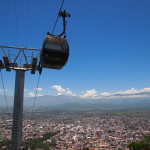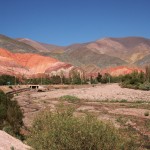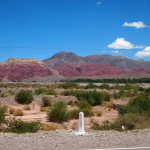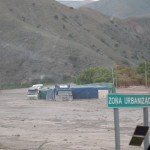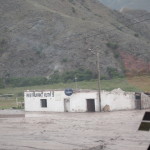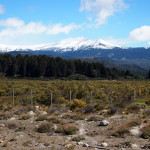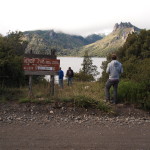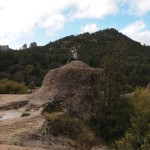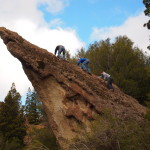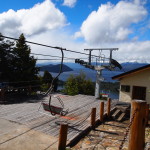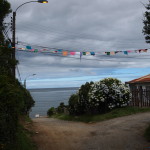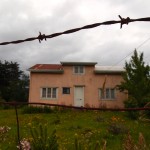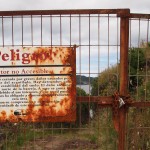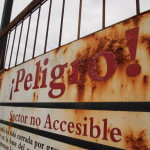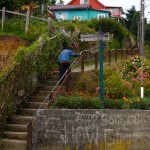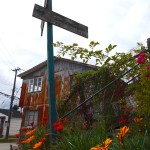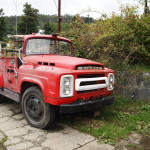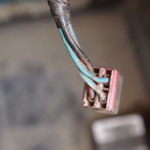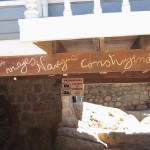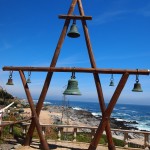Dealing with December’s Newtown shootings was rough. I was out of the country, thousands of miles away from home and all of the people who were grappling with this unexplainable violence. I was traveling and having the time of my life, when all of a sudden 20 innocent children in a Connecticut town — just a few miles down the highway from where three of my closest friends grew up — snapped me back to reality. I didn’t admit it then, but it certainly affected my emotional state the last two weeks of my trip.
But I never wrote anything on my blog about what happened in Newtown. And there’s a reason for that.
In this day and age of social media, blogs, and more online news resources than one can even name, when violent, scary events make national news, an outpour of emotional commentary comes with that news. In some ways, it’s comforting. Other writers express the fears, pain, and anger that you too have welling inside of you, and in a time of distress, it makes you feel less alone.
But in other ways, especially as a recent Journalism School graduate, it’s exhausting, and frustrating, to feel like our news agencies, so visible to the rest of the world’s eyes, are pushing and prodding these poor people dealing with deaths and incomprehensible injuries. These innocent families, who have already suffered enough, don’t need to be in the spotlight of the US’s desperate-for-viewership-and-high-ratings news agencies. Nor do the innocent family members and acquaintances of the suspects themselves. Just because they have a crazy nephew or second cousin twice removed, or even just a son who went to high school prom with this man, doesn’t mean their privacy needs to be invaded as well.
I hesitate to add to the jumble of reports, reactions, and emotions already on the internet about last Monday’s events in Boston. That being said, these Boston bombings hit even closer to home than the events in Newtown. I feel like I, at least partially, lived through the terror and exhaustion that Boston residents did last week, and I wanted to express the conflicted emotions I experienced over the last 7 days.
There are few things that really change your world more than knowing that the city you called home for 6 years was just attacked, and that not only are you 3,000 miles away from that city, but that you are helpless in doing anything to help your city, and your best friends who are still residents of that city, in their time of desperation.
Hearing the news about Boston rocked me to my core. I could barely function on Monday — I felt like a walking zombie, trying to process everything. Listening to NPR and watching the news was horrifying — clips of the bombs going off on a street where I used to walk every single day for more than five years was surreal. I couldn’t believe this was happening, to a city I call mine. It felt like a movie, not real life, because I wasn’t physically there to experience it.
But instead of feeling relief that I was across the country and safe in my own home, I felt guilty. It seems backwards, but I felt horrific that my friends were facing this without me, that I lay a tiny little sliver of claim to Boston and I wasn’t there.
But what’s important to understand, is that millions of people in the US have once called Boston home. It is a city comprised of more than 50 colleges and universities — hundreds of thousands of 18 year olds migrate to Boston every September to spend four or five (or in my case, six) years of their lives developing life-changing friendships and growing into young adults in this spectacular city filled with young people, yet compounded by an amazing history.
Don’t get me wrong, I have more than few complaints about Boston. For starters, the MBTA’s Green Line, the freezing cold, and the glamorous MassHoles (the not-so-nice nickname outsiders give Massachusetts natives) I found myself living amongst for many years. But Boston was my home. It was where I truly developed into who I am today. Where I discovered and established my independence. Where I worked my first journalism-related job. Where I was a reporter of all sorts. Where I still know the subway and the streets like the back of my hand. Where I graduated from Northeastern University, of which I am an incredibly proud alum. Where I have thousands of amazingly fond memories out and about in the city – some just a few feet or a few blocks from where those pressure bombs exploded.
I worked at the American Eagle on Newbury Street, just one block north of Boylston and one block west of Dartmouth Street, where the first bomb went off. I would take the 39 bus down Boylston Street to Copley station several times a week. I did research projects for school at the Boston Public Library, across the street. I walked through the Prudential Center hundreds of times. Some of my favorite bars: Pour House, Cactus Club, Lolita, and Towne, are all within a few blocks. When my parents came to Boston for graduation, they stayed at the Fairmount Hotel right on Copley Square.
I did some Facebook self-stalking and found a handful of pictures of me and my friends around Boston:
-

-
With the fountain at the Christian Science Center outside the Prudential Center
-

-
Summertime at Fanuiel Hall
-

-
Girlfriends after graduation in the North End
-

-
At Fenway Park
-

-
During the 4th of July fireworks on the Esplanade of the Charles River
-

-
Freshman year, posing with the faint light of the Pru in the background
-

-
Katie, Melissa, Kate, Jackie and I (the girls in my group text) at dinner in the Prudential Center
-

-
Post-shopping Saturday on Boylston
-

-
Freshman year after our Top of the Hub dessert adventure
-

-
More July 4th fun
-

-
On Huntington Avenue near Northeastern
So how do you handle it when your home, what feels like a part of you, has been attacked? It struck me suddenly: this is what people all across the world, living in countries much less safe than ours, feel on a regular basis. Their safety is constantly at risk. Their hometowns are always potential targets.
Here in the US, we’re sheltered, and we’re more lucky than we can imagine. So when these acts of violence are aimed toward us and our country and all that it stands for (good and bad), it’s often hard to take a step back and realize these things happen in other countries too. But they happen on a much more regular basis, and in many cases, violence is caused by governments themselves. It doesn’t make what happened in Boston any easier or justify it by any means, but, for me at least, it does bring a little bit of perspective.
A friend who is several years older than I am unintentionally brought an interesting thought to me. In my anxiety, frustration, and emotion of last week, I was talking to him about how genuinely sad and broken these events made me feel, and even though I knew Boston didn’t mean as much to him as it did to me, I asked why he didn’t seem so broken down about it.
“It’s less shocking to me,” he had said. In his lifetime, nearly a decade longer than mine, he remembers more of the violent events of recent history: the Oklahoma City bombings, September 11th, of course, the Little Rock shooting, and the recent Newtown incident, to name just a few. It’s not that he wants these things to happen, but he almost can expect that they will. He isn’t a beat down, depressed, or otherwise numb guy, and because of that, I hated his answer. But once I gave myself time to digest what he’d said to me, and our conversation following his immediate reaction, it makes a lot of sense. As we get older, we become more realistic. Our childhood sense of trust and wonder and good disappears slowly as we see more and more violence and bad in the world. And as a result, these horrific tragedies affect us less and less. I like to think it’s not true, that at the age of 60 these types of tragedies will upset me just as much as they do now, but I guess I won’t know that for another 36 years.
On the flip side, I will say that it’s a comfort and a relief to see the positive coverage of the aftermath of these bombings. Hearing the stories of the heroes who helped saved lives, of the people who rushed towards the sites and not away from them, and of the positive actions of so many people across the country, whether groups of runners dedicating their milage to Boston, people rushing out to donate blood, or the Chicago Tribune sending pizza to the Boston Globe’s newsroom, has been a a huge uplift.

The ending love of our unbelievably long group iMessage last week
For several years during my time at Northeastern, I was a tour guide and eventually served as co-president of the volunteer tour guide program. I made dozens of amazing friendships through the group, many of which have lasted long past graduation. Five of us, who I call my “admissions girls,” all hang out and talk on a somewhat regular basis (as much as we can with one of us in LA and another in NYC). We have a group iMessage chat, and we probably sent a total of 2,000 text messages over the course of last week.
Other friends, too, who I’d walked through Copley with, gone to school with down the street, who were volunteering for the Marathon that day, or who had friends or girlfriends or relatives running the course that day. Reaching out to them in the fear and aftermath of the bombings was terrifying, but so grounding at the same time.
Of course it was confusing, and horrific, and heartbreaking to face all of these conflicting news reports. To watch our city get such overwhelming, somewhat negative, media attention. But what a comfort, to have my girlfriends to complain and gush and freak out to. It made me realize that in all the chaos of the world, in all the unknown and violence, that what really matters in this world are the relationships we’ve forged, not the physical city streets where those friendships were solidified. I’d sat and drank dozens of 20 oz Pour House Blue Moons with these friends on the very street where the bombs had gone off. But it didn’t matter. What matters is that we have each other.
























































